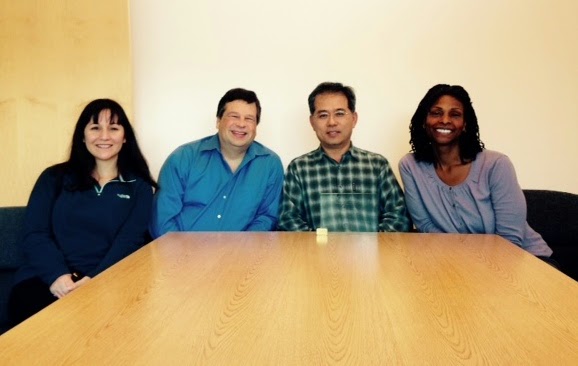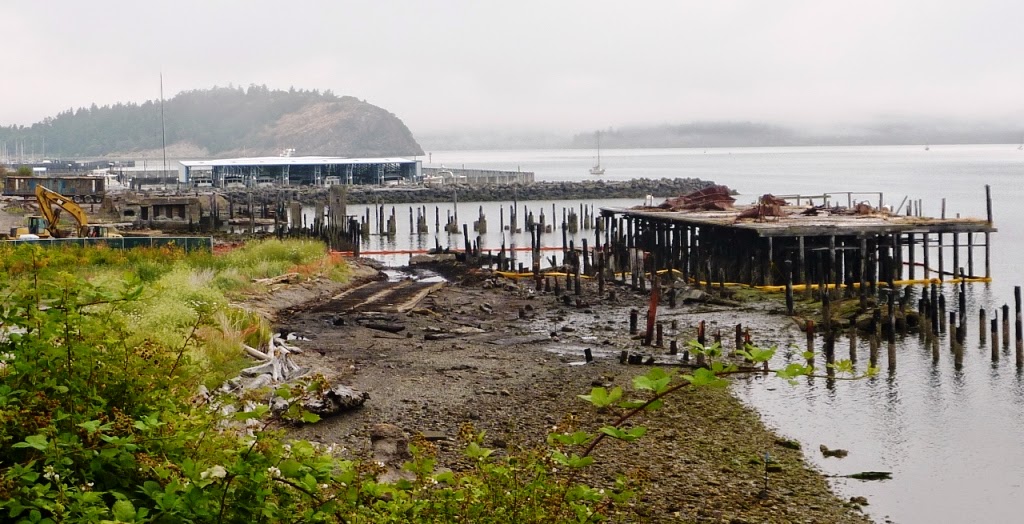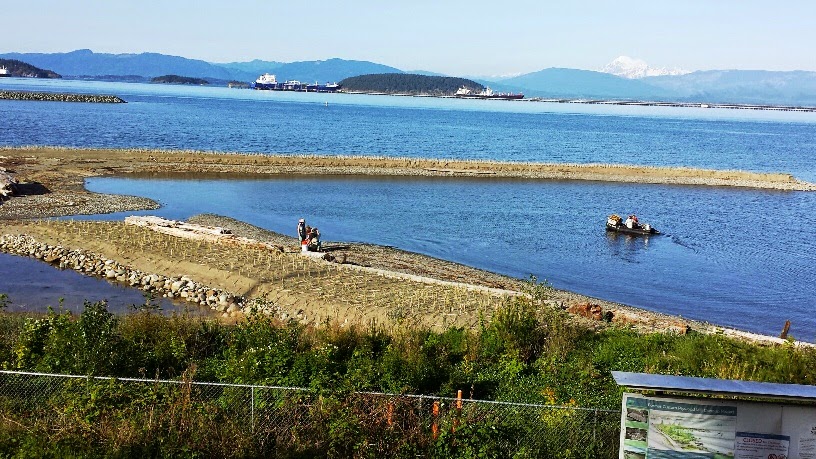The stunning transformation of a toxic old mill site in Anacortes is getting some well-deserved attention, and not just from community members.
Ecology team members were (from left to right) Arianne Fernandez, Pete Adolphson, Hun Seak Park, and Sandra Caldwell.
Custom Plywood is one of several sites in the Anacortes area that is being cleaned up under the Puget Sound Initiative.
From toxic to terrific
The Custom Plywood site in July 2013 ...
Groundwater beneath the site was contaminated. Dioxins and wood debris smothered marine sediments. Old pilings coated with toxic creosote and the remains of old structures slowly deteriorated in the bay.
In 2011, TCP led a cleanup of the site's 6 uplands acres. Contractors removed pilings and structures from the land, and dug up about 33,600 tons of contaminated soil. They brought in about 39,000 tons of clean soil to rebuild the land.
... and in May 2014.
Fidalgo Bay was connected to a wetland area created in 2011. A jetty was extended and a new spit was added to prevent waves from eroding the shoreline. And the shoreline was almost tripled in length.
Environment, economy, community
Custom Plywood is another example of how cleanup work can benefit the environment, the economy and the community. Cleanup puts people to work, which provides for an immediate economic benefit because construction crews spend money in the local area. Cleanup clears the way for future economic activity.
Cleanup improves and protects the environment, which also protects the health of local residents. And communities benefit from economic opportunities and an improved quality of life.




